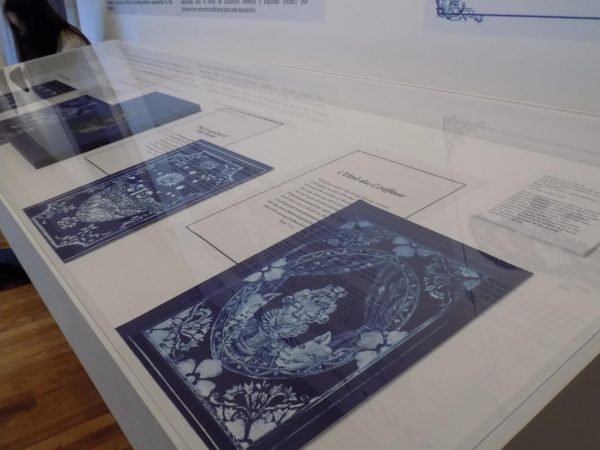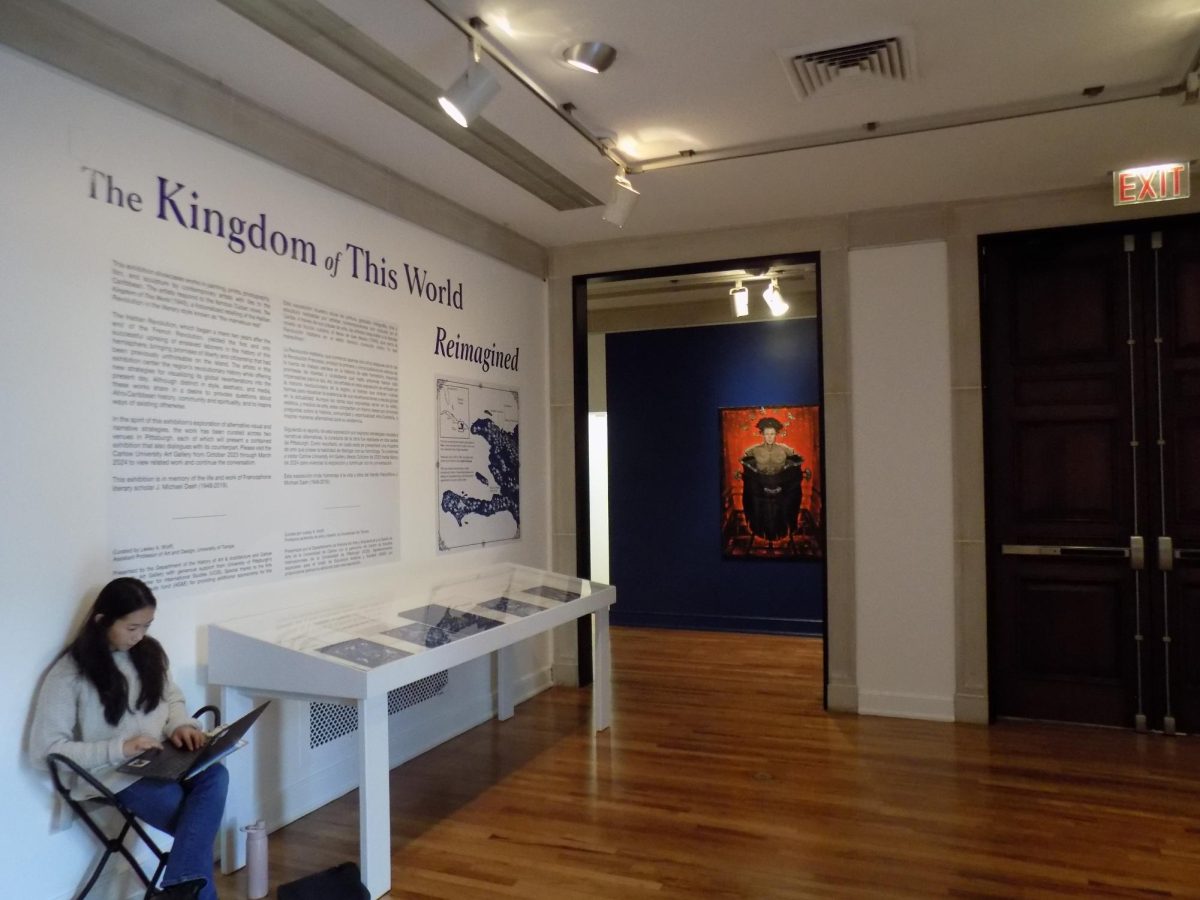The Frick Fine Arts Building is home to the art exhibit “The Kingdom of this World Reimagined,” inspired by the book “The Kingdom of this World” by Alejo Carpentier and other artworks from Caribbean and Latin American artists from Sept. 23 to March 1. The book is a fictionalized retelling of the Haitian Revolution, written in what Carpentier called “lo real maravilloso,” a style deeply tied to Latin American literature that is commonly known as “magical realism” in English.
The three parts that make up this Caribbean and Latin American-inspired art exhibition are “The Kingdom of this World Reimagined,” “Agua Firme” and a third, student-curated exhibit concentrating on Puerto Rican screen printing.
Charity Lark, a Pitt freshman psychology major, said her favorite aspects of the art exhibit include the themes that persists throughout the gallery.
“I like how the gallery is really interactive,” Lark said. “There’s a theme as you move through the gallery. So the idea is the first part is the land and the middle part of the rotunda is the water and the back is the sun. So it’s almost a linear process through the gallery.”
Two Dominican artists, sisters Iliana Emilia García and Scherezade García, designed the exhibit in the rotunda, titled “Agua Firme.” The piece, centered around water, displays a wooden boat and a golden airplane in the center of the room, with projectors playing videos on each of the four walls.
Carlos Rivera Morales, a graduate student in Pitt’s Department of Hispanic Languages and Literatures, said artists in the “Agua Firme” exhibit link modern and traditional forms of transportation across the Caribbean.
“The liquid highway is like a conduit for people from the Caribbean moving from one place to the other,” Rivera Morales said. “And then you see the two modes of transportation which they are trying to link here, one is the traditional Taino, the native population of the Caribbean, and obviously the modern airplane.”
Rivera Morales described what the exhibit means to him. He said he was grateful to see the exhibit completed and the positive effects it has on the people who come to see it.
“So, you know, one thing, it was just meeting with the artists and seeing their vision, seeing, like, talking to them explaining their vision. That was interesting. But also, I started when all this was just starting to be built. And so it was great to just see how an exhibition starts from beginning to end,” Rivera Morales said. “And I do tours here, so it helps people from the university, but also from outside the university connect with Caribbean culture. I’ve seen students from the Dominican Republic, Haiti, Puerto Rico, [and] they can personally identify with events we’re exhibiting here at the art gallery.”

Alejo Carpentier’s “The Kingdom of this World” inspired the biggest portion of the exhibit. The art is filled with colorful depictions of characters from the novel, as well as references to different mythological symbols and deities. The exhibit first debuted in Florida as the creation of the curator and art historian Lesley Wolff. She worked with an artist named Edouard Duval-Carrié, who started to do etchings based off of the novel, and she asked 10 artists who had roots in the Caribbean to contribute work based off of “The Kingdom of this World.”
Sylvia Rhor Samaniego, director and curator of the University Art Gallery at Pitt, speaks of her personal interactions with the book as well as the many different approaches and styles used by the artists who all based their work off of the book.
“When the curator came to me to ask me to host this show, I really didn’t actually know the novel and I didn’t know some of the artists in this show, so I started to do some research and I found it really powerful, both the book, which was something very new to me, even though it was written, I guess, close to 80 years ago. There’s still so many themes that are relevant and really important today,” Rhor Samaniego said. “The artworks were so diverse in media and in approach that even though they all started with the same text as the basis, they’re just so different and so evocative of elements of the colonial Caribbean, of Haitian identity, of issues of Black liberation and revolution, that all go in radical different directions, and I loved it.”
The exhibit contains representations of Ti Noel, the novel’s central character who experiences the world before, during and after the Haitian revolution, all told using the magical realism style of prose. The exhibition’s art reflects the diversity of topics that Carpentier explores, like history, nature, ethnicity, Vodou, violence and sexuality.
Sylvia Rhor Samaniego reflected on the use of layering throughout all of the artworks in the exhibits.
“I think layering is both a literal technique, like some of them layer medium upon medium, or object upon object, but it’s also metaphorical layering –– like the layers of history, the layers of colonialism, the layers of identity,” Rhor Samaniego said. “That’s something that runs through actually all three of the exhibitions, both the technical use of layering and patterning, but also the metaphorical exploration of the layers of identity and history and the Caribbean.”


